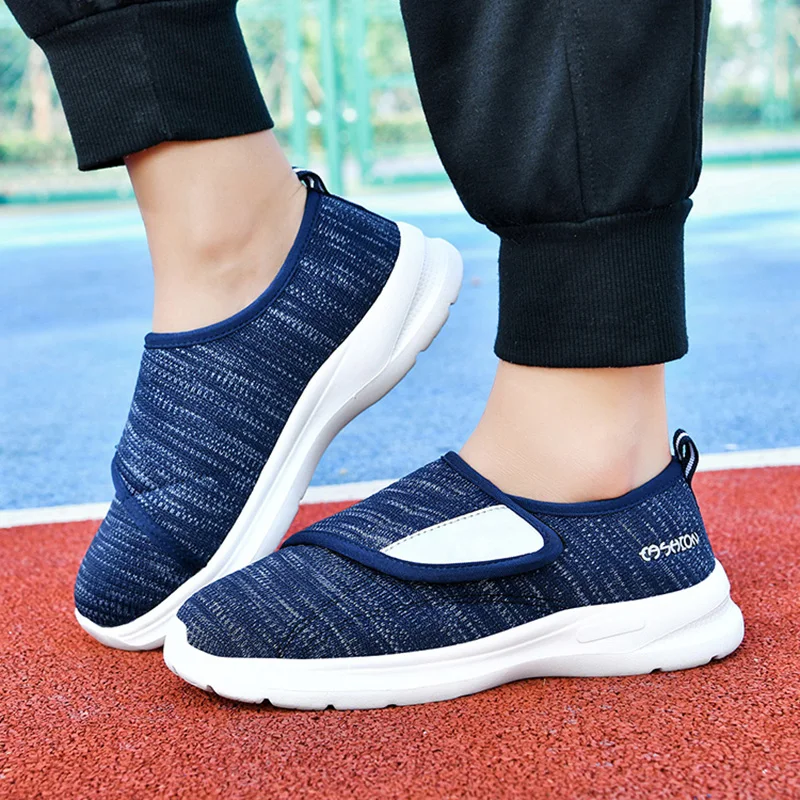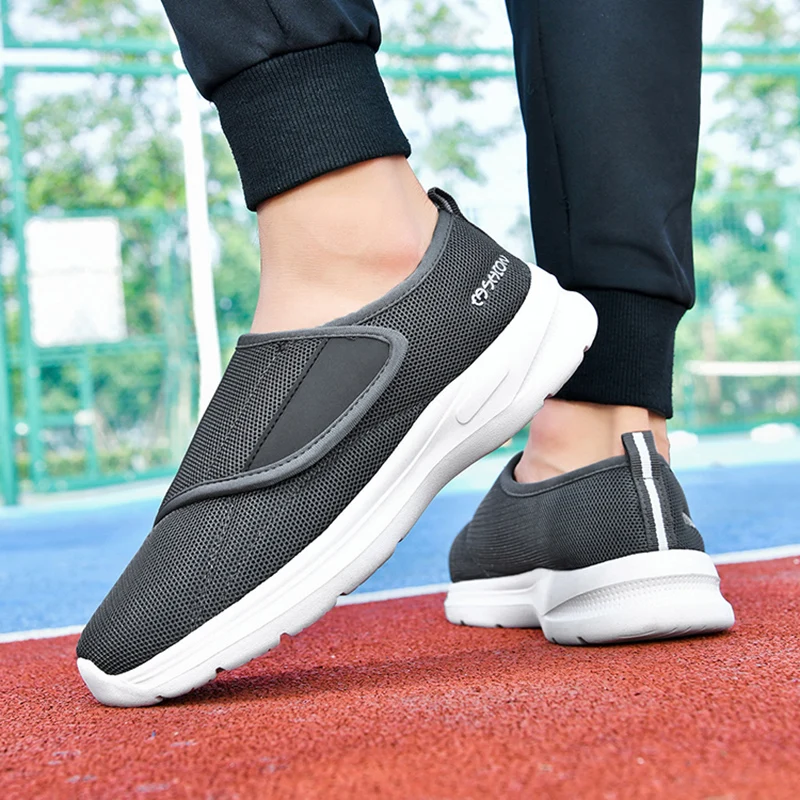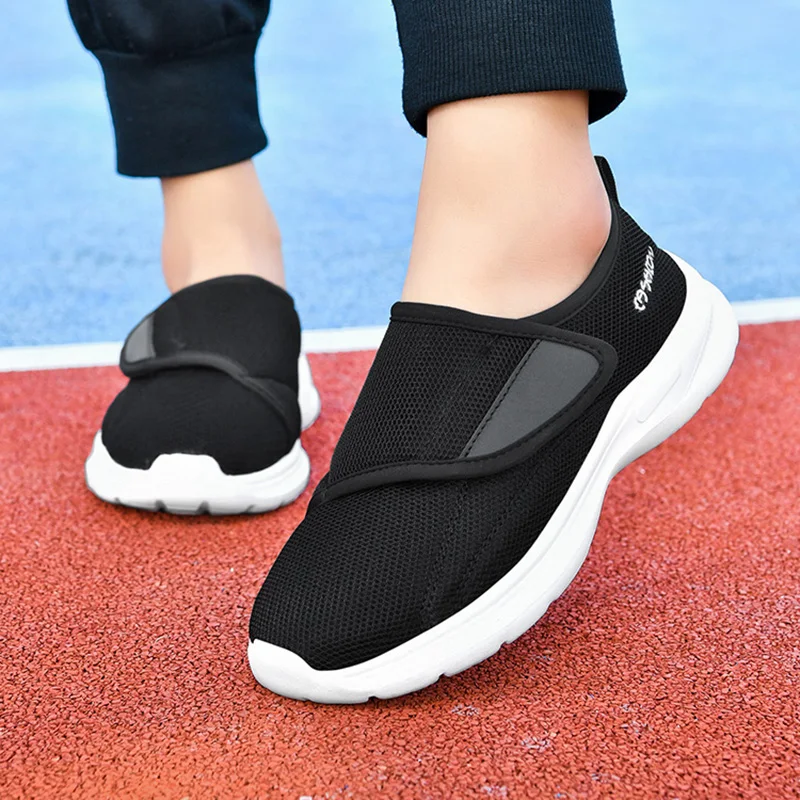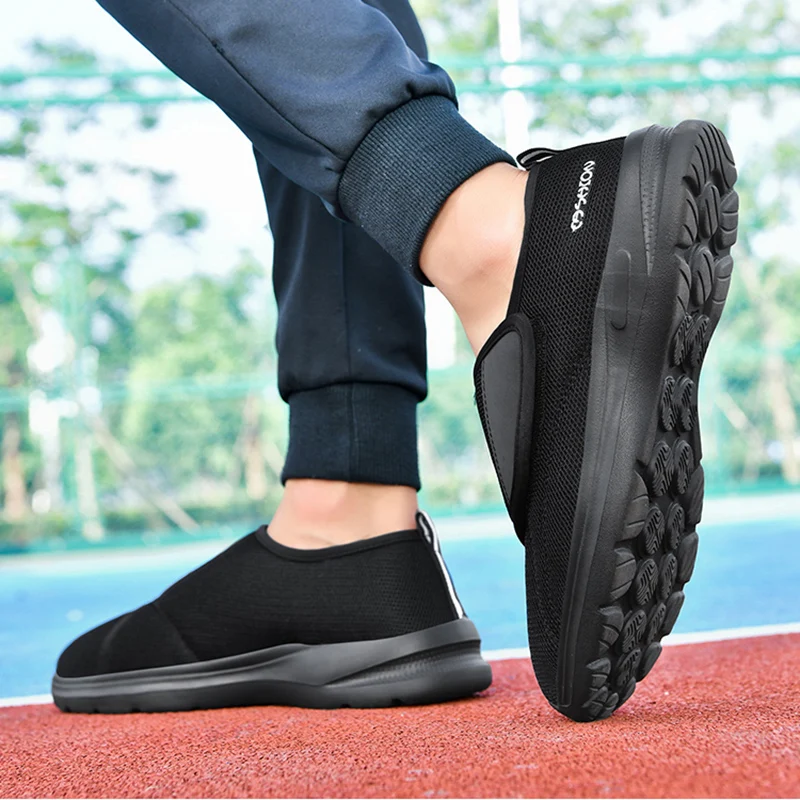Introduction
Flat feet, or fallen arches, are a common condition affecting many individuals. This condition occurs when the arch of the foot collapses, causing the entire foot to come into contact with the ground. People with flat feet often experience discomfort and pain, particularly after prolonged standing or walking. Orthopedic shoes for flat feet can provide the necessary support and comfort to alleviate these issues. This article will explore what flat feet are, the benefits of orthopedic shoes, features to look for, and some recommended brands.

Understanding Flat Feet
What Are Flat Feet?
Flat feet, medically known as pes planus, occur when the arches of the feet do not develop properly. This condition can be present at birth or develop over time. People with flat feet have little to no arch when standing, and their feet may appear wider than normal. While some individuals with flat feet do not experience any symptoms, many others suffer from pain, fatigue, and discomfort.
Flat feet can be categorized into two types: flexible and rigid. Flexible flat feet are common in children and can often improve as they grow. In contrast, rigid flat feet are more problematic and often require treatment. Individuals with flat feet may experience various symptoms, including aching in the feet, knees, or lower back. Other signs may include swelling and tiredness after standing for long periods.
Causes of Flat Feet
Several factors can contribute to the development of flat feet. Genetics often plays a significant role; if one or both parents have flat feet, their children may be more likely to have them too. Additionally, certain medical conditions can lead to flat feet. For instance, arthritis can cause inflammation in the joints, affecting foot structure. Other conditions, like diabetes, can lead to nerve damage and muscle weakness, which may also contribute to flat feet.
Injuries to the foot, particularly those affecting the tendons or ligaments, can cause flat feet. The posterior tibial tendon, which supports the arch, can become damaged due to overuse or injury, leading to flatfoot deformity. Age is another factor; as people grow older, the tendons that support the arch can weaken, resulting in a flattening of the foot.
Symptoms and Diagnosis
Symptoms of flat feet can vary widely from person to person. Some individuals may experience no pain, while others may suffer from discomfort and fatigue. Common symptoms include aching feet, particularly in the arch and heel. Swelling around the ankle and tiredness after standing are also frequent complaints.
If you suspect you have flat feet, it is essential to seek a professional diagnosis. A healthcare provider or a podiatrist can assess your foot structure and determine if you have flat feet. They may perform a physical examination, observe how you walk, and conduct imaging tests if necessary. Proper diagnosis is crucial for developing an effective treatment plan.

Benefits of Orthopedic Shoes
Support and Stability
One of the primary benefits of orthopedic shoes is the support they provide. These shoes are designed to offer additional arch support, which is crucial for individuals with flat feet. When the arch is supported, it can help distribute weight evenly across the foot. This distribution can alleviate pressure on the heels and toes, reducing the likelihood of pain and discomfort.
Orthopedic shoes often have built-in orthotic insoles that help maintain proper foot alignment. This feature is especially beneficial for individuals who overpronate, a common issue for those with flat feet. Overpronation occurs when the foot rolls inward excessively while walking or running. Supportive orthopedic shoes can help prevent this, improving overall foot function.
Cushioning and Shock Absorption
Another significant advantage of orthopedic shoes is the cushioning they provide. These shoes often feature specialized cushioning materials that absorb shock during walking or running. This cushioning can reduce the impact on the feet, knees, and lower back, making physical activities more comfortable. For individuals with flat feet, this extra cushioning can help minimize fatigue and soreness after extended periods of standing or walking.
Cushioning in orthopedic shoes is designed to provide a plush feel without compromising support. Many orthopedic shoes use advanced technologies to enhance cushioning, ensuring a comfortable fit for all-day wear. This combination of support and cushioning makes orthopedic shoes an excellent choice for those with flat feet.
Improved Posture
Wearing orthopedic shoes can lead to improved posture. When the feet are adequately supported, it can positively impact the alignment of the entire body. Good posture is essential for overall health and can help prevent back and joint pain. Orthopedic shoes encourage proper foot positioning, reducing the risk of misalignment in the knees, hips, and spine.
Many people with flat feet may unknowingly adjust their posture to compensate for discomfort. This compensation can lead to poor posture and additional pain in other areas of the body. Orthopedic shoes can help individuals stand and walk more comfortably, promoting a more natural and healthy posture.
Features to Look for in Orthopedic Shoes
Arch Support
When selecting orthopedic shoes for flat feet, arch support is one of the most critical features to consider. Shoes with proper arch support help maintain the natural shape of the foot and prevent excessive rolling inward. Look for shoes with built-in arch support or the option to add custom orthotics.
Many orthopedic shoes come with removable insoles, allowing you to replace them with custom orthotics if needed. This feature is beneficial for those with specific foot conditions or preferences. Proper arch support can significantly improve comfort and reduce pain associated with flat feet.
Cushioning and Shock Absorption
As mentioned earlier, cushioning is crucial for individuals with flat feet. Look for shoes that feature high-quality cushioning materials, such as EVA foam or gel inserts. These materials provide excellent shock absorption, reducing the impact on the feet during activities. Shoes with a soft, padded collar and tongue can also enhance comfort and prevent irritation.
It is essential to find a balance between cushioning and support. While excessive cushioning can lead to instability, too little cushioning can cause discomfort. Look for shoes that provide adequate support while still feeling comfortable on your feet.

Wide Toe Box
Individuals with flat feet often have wider feet. A wide toe box is essential for allowing enough room for the toes to move freely. Shoes with a narrow toe box can cause discomfort and may lead to additional foot problems. When shopping for orthopedic shoes, choose styles that offer a wide toe box. This feature can help prevent pinching and pressure on the toes, making for a more comfortable fit.
Many orthopedic shoe brands offer various widths to accommodate different foot shapes. Trying on shoes in a store can help you find the best fit. If you are shopping online, check the sizing chart and look for reviews that mention the fit.
Recommended Orthopedic Shoe Brands
New Balance
New Balance is a well-known brand that offers a wide range of orthopedic shoes for flat feet. They prioritize comfort, support, and style in their designs. New Balance shoes often feature excellent arch support, cushioning, and various widths to accommodate different foot shapes.
Many of their models come with removable insoles, allowing you to customize the fit with orthotic inserts if needed. New Balance shoes are suitable for various activities, from walking and running to casual wear. Their commitment to quality and comfort makes them a popular choice for individuals with flat feet.
ASICS
ASICS is another excellent brand known for its orthopedic footwear. Their shoes often feature advanced cushioning technologies, such as Gel technology, which absorbs shock during impact. ASICS shoes are designed with stability in mind, making them suitable for individuals with flat feet.
They offer various models that cater to different activities, including running, walking, and everyday wear. ASICS shoes often have a wide toe box, providing ample room for individuals with wider feet. Their focus on performance and comfort makes ASICS a trusted brand for those seeking orthopedic shoes.
Brooks
Brooks specializes in running shoes but also offers excellent orthopedic options for individuals with flat feet. Their shoes are designed to provide exceptional support and cushioning, making them suitable for various activities. Brooks shoes often feature a built-in arch support system, helping to stabilize the foot during movement.
Many of their models come with a wider fit, allowing for more toe space. This feature is essential for preventing discomfort and ensuring a proper fit. Brooks shoes are known for their quality and performance, making them a favorite among runners and those with flat feet alike.
How to Choose the Right Orthopedic Shoes
Assess Your Foot Type
Before purchasing orthopedic shoes, it is essential to assess your foot type. Understanding your unique foot shape can help you find the best fit. If you have flat feet, look for shoes designed specifically for this condition. Many brands offer options tailored to the needs of individuals with flat feet.
If you are unsure about your foot type, consider visiting a podiatrist. They can evaluate your feet and provide recommendations based on your specific needs. This step is particularly important if you have existing foot problems or concerns.
Try Shoes On
Trying on shoes before purchasing is crucial. Visit a store that carries a variety of orthopedic shoes for flat feet. Walk around the store to assess comfort and support. Pay attention to how the shoe fits around the arch, heel, and toe box. A good fit should feel snug without being too tight.
Consider wearing the same type of socks you plan to use with the shoes. This can affect the fit and comfort of the shoes. If you plan to use custom orthotics, bring them along to ensure a proper fit.
Consult with Experts
If you are unsure which orthopedic shoes are best for you, consult with experts. Many running stores and orthopedic shoe retailers have knowledgeable staff who can assess your foot type and recommend suitable options. They can provide valuable insights into the best shoes for your specific needs.
Additionally, consider seeking advice from a podiatrist or orthopedic specialist. They can offer guidance on selecting shoes that provide the necessary support and comfort for your flat feet.
